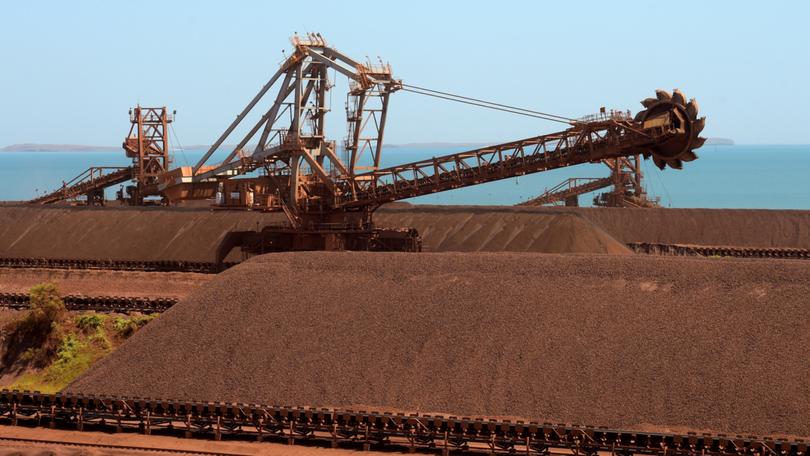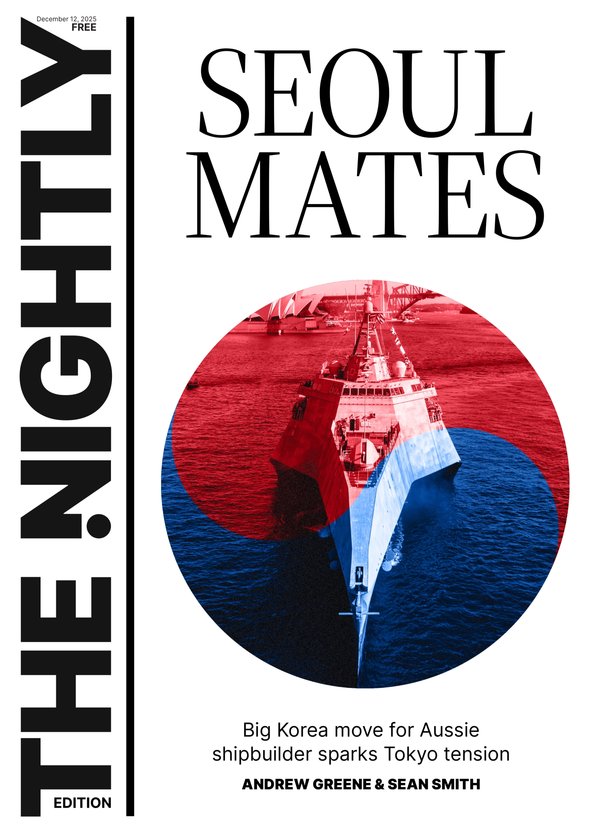Rio Tinto’s third quarter Pilbara iron ore exports misses expectations, inflation keeps creeping up

Persistent cost inflation and low-grade iron ore at Rio Tinto’s mining heartland is eating into margins and delivered a quarterly labelled as “disappointing”.
Rio reported on Wednesday that shipments from its key Pilbara iron ore operations rose to 84.5 million tonnes in the three months to September 30 — up one per cent from the same period a year ago.
But the result was lower than analyst consensus of 85.1mt.
Sign up to The Nightly's newsletters.
Get the first look at the digital newspaper, curated daily stories and breaking headlines delivered to your inbox.
By continuing you agree to our Terms and Privacy Policy.SP10, the lower grade iron ore product Rio produces, accounted for 19 per cent of shipments versus an average of 17 per cent in the first half 2024.
SP10 is of inferior quality to Rio’s flagship product — the Pilbara Blend.
The growing portion of SP10 is making it harder for Rio to maintain its overall product quality, which RBC analyst Kaan Peker says could hurt the price Rio receives for its iron ore in the long-term.
The miner is launching a review to ensure it maintains quality control.
“We are reviewing our future product strategy, having regard to customer requirements and available ore grades,” Rio said in a statement.
Citi analyst Paul McTaggart said shareholders would not be pleased with the result.
“Rio has been criticised by investors for offering an unnecessarily full price to Arcadium shareholders and has followed this up with a disappointing September production report,” he said.
Shares in Rio were down 1.5 per cent in early trade on Wednesday, with its market losses outpacing those of key peers BHP and Fortescue.
China, Rio’s biggest market, is struggling to rebound from a prolonged property slump.
But the miner believes new growth areas will emerge in the Middle Kingdom for its commodities — including a greater reliance on advanced manufacturing, which could be good news for its growing lithium portfolio.
“China’s economic recovery has been uneven, prompting more government support to sustain growth,” Rio stated.
“Manufacturing and exports have outperformed, while the property market downturn continues, amidst concerns over local government debt and low consumer confidence.
“As the economy transitions from the property sector to new growth areas, future commodity demand will turn more reliant on advanced manufacturing, including electric vehicles, and power infrastructure (generation, transmission and distribution, and storage).”
Despite weak prices, Rio is a taking a long-term punt on the lithium market and last week secured a $9.96 billon deal to buy out Arcadium Lithium.
Arcadium, which is dual-listed in Australia and the US after being formed through the merger of Allkem and Livent in January, was rumoured to be in the crosshairs of Rio for many months.
Rio said lithium demand continued to grow with electric vehicle sales rising 20 per cent year-on-year over the first eight months despite a slower-than-expected uptake from Europe and the US.
“On the supply side, projects continue to develop, while some closures in Australia and China have also been announced given soft prices, which continued to fall over the third quarter,” it said.
“Market fundamentals for lithium remain attractive over the longer term, given increasing EV penetration rates driven by the energy transition.”
The miner is expecting the global economy to grow moderately this year, similar to last year, while industrial production is still on a gradual recovery.
“Market sentiment improved in late September given a deeper-than-expected interest rate cut by the US Federal Reserve, followed by the announcement of monetary stimulus measures in China that signalled a reprioritisation on economic growth,” it said.
“Geopolitical tensions and trade barriers remain near-term global economic risks.”
